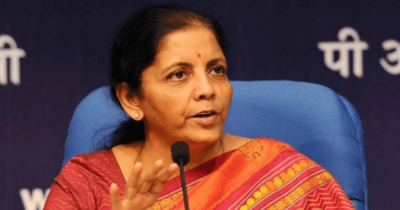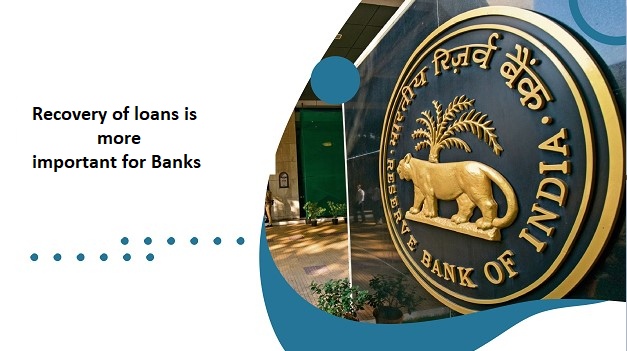
Industry is resetting to be competitive: Nirmala Sitharaman
- November 30, 2020
- 0
Recently, FM Nirmala Shitharaman was answering to media, she was very straight forwards to the queries. Abstaets is presented for the consideration of readers.
Do you expect a strong bounce-back in the second half and what are the reasons?
A steadily positive message is coming, whether it’s increased GST collections, car and two-wheeler figures, exports, FDI inflows, forex reserves, today’s PMI numbers, or the rural economy sustaining its positive growth. All this gives the hope it is sustaining, but on a note of caution, I will still say I am waiting to get on firmer ground and talk with a lot more certainty.
What would looking for a firmer footing mean?
Continuation of the figures next month as well. Last month, the argument was of pent up demand. October did not have pent up demand and there was adhikmaas (seen to be inauspicious for purchases). Since Diwali is in November, people may say it was due to the festival. I want to see steady growth even with these socalled exceptions getting rationalised.
Are you looking more at domestic demand to sustain growth?
Rise in exports is steady. When I speak to industry, they clearly say there is a lot of reset in industry from the point of view of running businesses with less than more — less of capital, manpower, effort and certain inputs. Industry is realising competitiveness is a strong message. With that, they can reach newer markets, which probably have space that has been vacated.
Does this manpower-driven efficiency increase the challenge for the Centre as far as jobs are concerned?
Various factors are affecting that. Skilled manpower is using the change to find newer and better paying options. Partly-skilled people are probably getting better paid jobs elsewhere. Unskilled people have enough jobs being made available in their respective areas. So, there is a shift happening.
What is the government’s pitch to investors?
The PM’s roundtable with global investors will be very important. During the two terms, we have gradually opened up the economy for FDI, except very few sectors. We have also extended a lot of tax concessions for sovereign funds. When they come, they come after exhaustive study of what is being provided and then look for long-term sustainable investment opportunities. So, all this is getting linked to the National Investment Pipeline, where 7,000 projects have been identified after rigorous work in 2019. The NIIF has had very good success in pooling investors and matching with investible projects. I expect this to be one of the major catalytic points in bringing investors to build infrastructure. Once money goes into infrastructure, it has a very strong multiplier effect.
How is the progress on getting investors to relocate to India?
The robustness of the PLI scheme has attracted a lot of electronics and mobile phone manufacturers to India. There is similar interest in pharma and medical devices.
What is the assessment of distress in the corporate sector and bank balance sheets?
I am monitoring banks. Because we could extend timely working capital, many who could have faced severe stress have just held up. Many have gone back to business and it is reflecting in the GST and PMI numbers. Banks are also open-minded. With liquidity being fairly easily available, stressed companies will survive. The way we have made funds available to NBFCs has helped reach the farthest point of villages. Some not-so-viable firms will fall off but most or many will see good help and assistance from banks and NBFCs.
Food inflation has emerged as a cause for concern.
Inflation will always be a cause for concern. But in India, perishable goods inflation is an issue. For perishable goods, if the smallest disruption happens on the supply side, it immediately jacks up consumer-end prices. If the onion crop, let us say, is affected due to floods, excessive rains… it is bound to have an impact on the market for which the government will have to immediately make arrangements. I understand the food and commerce ministers are coordinating efforts. Similar is the case of potato shortage. Tomato, Onion, Potato — the TOP is something on which some money was granted through food processing a year ago, even during the Atmanirbhar package.
Do you think bureaucrats are still scared to take decisions?
I wouldn’t say they are not coming forward to take decisions but they are cautious. We have allowed bureaucrats to work together with us and we have formed groups of ministers, groups of secretaries, groups of secretaries at the cabinet secretary level… these act as filters. Therefore, the kind of question: ‘Am I going to be caught alone for signing this file’ is not there. Everybody is working together as a team.
Do the reforms which the government has brought about provide the framework for moving forward?
No doubt, reforms will be the plank and even industry has realised that they have to look at themselves as to how they are going to live in the post-Covid era. There is a lot of reset happening. So government will also have to see how the economy, given the reset, is doing and therefore the government resets that we have to undertake.































































